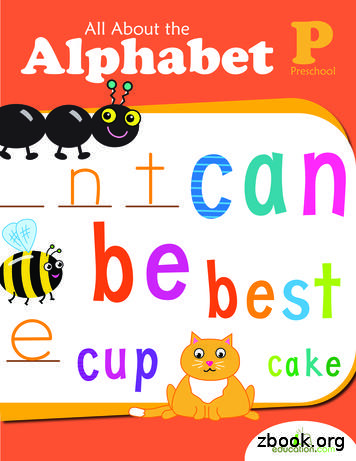Reading Guide: On Writing By Stephen King
NameReading Guide: On Writing by Stephen KingDue First Day of Class! Be sure your answers are complete (no one-word answers!) 100 points1. Do you agree with Stephen King that the desire to write always starts with a love ofreading? How much and what do you read? Give details in your answer.2. What role did Stephen King's childhood play in his evolution as a writer? Did yourchildhood experiences, especially in elementary and middle school, influence yourfeelings about writing?
[Type here]3. While King delights in the nuts-and-bolts mechanics of the writing process, he concedesthat good writing involves magic as well. Do you agree with King's assertion that "while itis impossible to make a competent writer out of a bad writer, and while it is equallyimpossible to make a great writer out of a good one, it is possible, with lots of hard work,dedication, and timely help, to make a good writer out of a merely competent one?" Towhat degree can a writer be made? To what extent can writing be taught? What writingskills do you come by naturally, and which have you had to work to acquire or improve?4. Discuss King's "toolbox" analogy. What "tools" do you find most indispensable when youwrite? Are there any you would add to King's toolbox?
[Type here]5. King doesn't read in order to "study the craft" but believes that there is "a learningprocess going on" when he reads. How do you read books? What do you think about asyou read? Are you aware of a writer’s style and language use?6. In the first foreword to On Writing, King talks about the fact that no one ever askspopular writers about the language. Yet he cares passionately about language andabout the art and craft of telling stories on paper. How well do you know grammar andmechanics? Do you think you are a good writer? Explain your answer.
[Type here]7. Often, King says, "bad books have more to teach than the good ones." He believes thatmost readers remember the first book they put down thinking "I can write better thanthis." Can you remember a book that gave you that feeling? Why?8. King's self-imposed "production schedule" is 2,000 words a day and he suggests that allwriters set a daily writing goal. What kind of discipline, if any, do you impose upon yourown writing efforts? Do you have a particular place where you go to write? Do you havea routine that you follow?
[Type here]9. King tells a story about getting his fantasy desk, a massive oak slab that he placed in themiddle of his spacious study. For six years, he sat "behind that desk either drunk orwrecked out of [his] mind." After sobering up, he replaced the desk with a smaller onethat he put in a corner. "Life isn't a support system for art," he figured out. "It's the otherway around." Discuss King's "revelation" and the symbolism of the placement of thedesk.10. What do you expect to get out of Writing 101? Why are you taking the class?Part of this discussion guide is reprinted with the permission of Pocket Books.
by Stephen King Due First Day of Class! Be sure your answers are complete (no one-word answers!) 100 points 1. Do you agree with Stephen King that the desire to write always starts with a love of reading? How much and what do you read? Give details in your answer. 2. What role did Stephen King's
All About the Alphabet Reading Alphabet Fun: A Reading Alphabet Fun: B Reading Alphabet Fun: C Reading Alphabet Fun: D Reading Alphabet Fun: E Reading Alphabet Fun: F Reading Alphabet Fun: G Reading Alphabet Fun: H Reading Alphabet Fun: I Reading Alphabet Fun: J Reading Alphabet Fun: K Reading Alphabet Fu
Academic Writing Quiz xvii Part 1 The Writing Process 1 1.1 Background to Writing 3 The purpose of academic writing 3 Common types of academic writing 4 The format of long and short writing tasks 4 The features of academic writing 6 Some other common text features 6 Simple and longer sentences 7 Writing in paragraphs 8 1.2 Reading: Finding .
Academic writing skills: Essay types Essay structure Writing task type: Write the first draft of an essay. Writing task: . Reading & Writing Sills 4 Chris Sowton Frontmatter More information. UNIT VIDEO READING VOCABULARY GRAMMAR CRITICAL THINKING WRITING 6 ENVIRONMENT Reading 1: Disaster mitigation (Meteorology)
Academics Academic Support Programs Reading, Writing, and Study Strategies Center Reading, Writing, and Study Strategies Center Reading, Writing, and Study Strategies Center FAQs Resources Academic Support Programs Campus Center 1-1300 UMass Boston 100 Morrissey Blvd. Boston, MA 02125-3393 617-287-6550 Reading, Writing, and Study Strategies
Reading or listening to stories, writing in response to them, and getting involved in discussions enhance children's abilities to understand the things they read. 3. Reading nurtures writing performance. Writing nurtures reading skills. Relating reading and writing experiences as the activities in this book suggest prompts growth in
Best Practice Book for IELTS Writing. Table of Contents IELTS Writing 1 IELTS Writing 9 IELTS Writing - Overview 9 IELTS Academic Writing 10 IELTS ACADEMIC WRITING 10 IELTS General Writing 11 IELTS Writing Task General (Task 1) 12 Sample 1 12 Sample 2 12 Sample 3 13 Sa
SCOTT FORESMAN READING STREET ISBN-13: ISBN-10: 978-0-328-68632-2 0-328-68632-8 9 780328686322 90000 4 RS_G2-G6_CC_NA_WritingResearchHandbook.indd 4 2/4/11 2:20 PM Writing and Research Handbook Reading Street Sleuth Online Journal Online Essay Scorer Writing Transparencies Online/DVD-ROM 21st Century Writing Online Writing powers understanding.
David L. Coker, Jr. Austin S. Jennings Elizabeth Farley-Ripple Charles A. MacArthur University of Delaware Published 2018 Journal of Educational Psychology . writing instruction and student writing practice on reading achievement in first grade. Fall reading, vocabulary, and writing data were collected from 391 students, and classroom writing .























